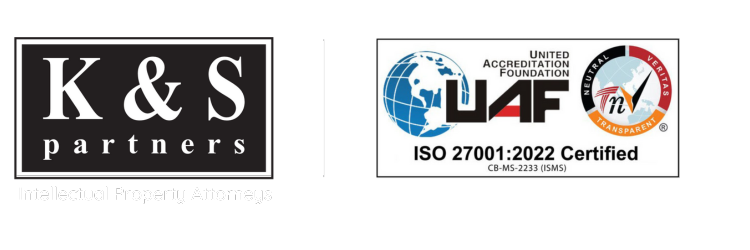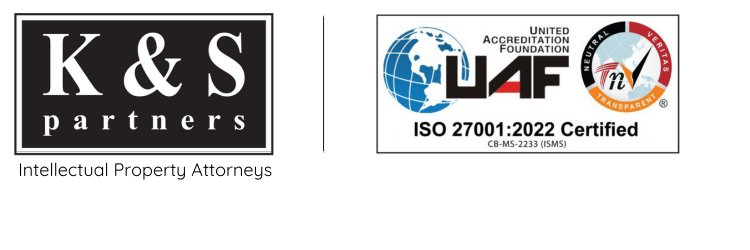Trademark Practice


PROFESSIONALS
SUCCESSFUL DEFENCES IN 2022
AWARDS
28 Years of Protecting and Defending Trademarks
The trademark team has nearly three decades of experience. The firm provides services for every stage in the lifecycle of a trademark for Indian and global corporations, individuals, government agencies, SMEs, and start-ups.
Featured Industry Expertise
Food & Beverage
Hospitality
Apparel
Cosmetics
Pharmaceuticals
FMCG
Chemicals
Automobiles
Financial Services
Startup
Fintech
Gaming
Wines & Spirits
Education
Jewelry
Services Offered in Trademark Practice
Prosecution
Drafting and filing of trademark, certification mark, and collective mark applications, including Madrid applications
Reviewing and responding to examination reports and provisional refusals
Attending hearings in connection with the prosecution of trademark applications
Filing and arguing review petitions against refusal orders in trademark applications
Renewals and post-registration services
Advisory & Contentious
Advising on the registrability, classification of goods and services, issues arising out of Madrid filings, and review petitions and appeals arising from the orders of the Trade Marks Registry
Advising clients on global brand strategies, brand protection measures in the digital, cyber, and social media context, border enforcement measures, infringement and passing-off, unfair competition, protectability
Analysing investigation reports of brand violations and advising protection strategies
Analysing and advising clients on market survey findings to assess genericness and offering measures to address generic usage and reclamation of the brand
Protection
Trademark watches through journal reviews, reporting, and related advice
Market and online watches for trademark violation
Availability searches and opinions
Trademark oppositions and cancellations including opinions on chances of success
Border enforcement through custom recordation
Transactional
IP due diligence, including in the context of M&A transactions;
Transactional support such as licensing, assignments, band endorsement agreements including by influencers, merchandising agreements, and drafting and vetting of IP contracts involving trademarks
Domain Name
Registration and renewal of domain names
Advising clients on issues relating to the protectability and violation of domain names
Drafting and filing domain name complaints and responses to such complaints before the .IN Registry or ICANN as the case may be
Trademark Practice Attorneys

Latha Nair
Partner | Trademark Practice Chair

Aishwarya Menon
Partner

Anooja Padhee
Partner

Ashish Chang Marbaniang
Partner

Ashish Kanta Singh
Partner
AWARDS & RECOGNITIONS







MEMBERSHIPS










Frequently Asked Questions
A “trademark” is defined as any mark which is capable of being represented graphically, and helps in distinguishing the goods and services of one person from those of others and may include shape of goods, packaging and combination of colours etc. Simply put, a trademark is anything and everything that acts as a source identifier of goods or services.
Trademarks can range from a word mark, logo, device, label, hologram, a tag line, a smell, taste, shape of an article, packaging, combination of colors or even a single color. In fact, even a sound or a jingle can be registered as a trademark when graphically represented in the form of musical notes.
Trademarks can be classified under the following broad categories:
Product marks – marks which identify the goods in respect of which they are used;
Service marks – marks which identify the services in respect of which they are used
Certification marks – marks which are capable of distinguishing the goods or services in connection with which they are used in the course of trade, which are certified by the proprietor of the mark in respect of origin, material, mode of manufacture of goods or performance of service, quality, accuracy or other characteristics from goods or services not so certified. For example, WOOLMARK, ISI mark, AGMARK etc.; and
Collective marks – marks which distinguish the goods or services provided by an association or membership of persons (not being a partnership within the meaning of the Indian Partnership Act, 1932) from those of others.
Innovative or inventive marks make great trademarks. One should, therefore, avoid marks which are common to trade or descriptive of the goods or services being offered under the mark. The following factors may be taken into consideration while adopting a trademark:
the mark should be capable of distinguishing goods or services of one from those of others;
it should not be descriptive of the kind, quality, quantity, intended purpose, values, geographical origin or other characteristics;
it should not be a mark or indication which has become customary in the current language or in the established practice of the trade;
it should not comprise or contain scandalous or obscene matter;
it should not be prohibited under the Emblems and Names (Prevention of Improper Use) Act, 1950 (12 of 1950);
it should not be of such nature which can deceive the public or cause confusion.
Trademarks play a dual protection role. From the perspective of a proprietor, trademarks help in identifying and distinguishing his products or services from those of a competitor, thereby protecting the reputation of the proprietor and building brand value. From a consumer’s point of view, trademarks protect public interest by ensuring that the public, while purchasing goods or services of a particular trader, are not confused or deceived as to the origin, quality or reputation of the goods or services in question and are able to distinguish the goods or services of one trader from those of another.
India recognizes statutory protection for trademarks under the Indian Trade Marks Act, 1999 (“the TM Act”). As such, trademarks can be registered under the TM Act by filing a trademark application before the relevant trademark office in India. India has five trade mark offices located in New Delhi, Kolkata, Mumbai, Ahmedabad and Chennai.
Once registered, a trademark becomes the exclusive property of the registered proprietor and any unauthorized use thereof can be restrained by way of an infringement suit. Besides registered trademarks, India also recognizes and protects unregistered trademarks through passing-off actions under common law.
Once a mark is registered as a trademark, it is valid for a period of 10 years. Upon expiry of this period, the registration can be renewed for further 10 years by paying the renewal fee from time to time. If the mark is not renewed within one year from the date of expiry of the registration or last renewal, it will be removed from the Register of Trade Marks.
India, being a common law country, recognizes rights in a trademark acquired through use even in the absence of registration. Unregistered rights in a mark are protected through the common law remedy of passing-off.
Service marks are protectable under the Trademark Act.



